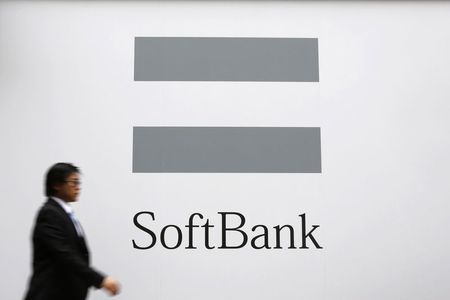By Teppei Kasai TOKYO (Reuters) - If Masayoshi Son, the billionaire founder and CEO of SoftBank Corp needs a fresh strategy to fend off a surprise French counterbid for a prized U.S. telecoms target, he could do worse than ask budding entrepreneurs at the SoftBank Academia.
Here, some 300 or so aspiring leaders - split about evenly between company insiders and entrepreneurs from outside - brainstorm ideas and vie to catch Son's eye, with a chance he'll offer them a job or invest in their company, or even choose them as his "heir" to run Japan's second most valuable listed company.
The Academia, set up by Son four years ago, meets once or twice a month in the 25th floor cafeteria of SoftBank's Tokyo headquarters. In what sounds like an episode from business-reality TV show "The Apprentice", the budding leaders play business-themed board games and compete with 5-minute business proposals that are judged by their peers. The winners get to meet Son; the losers hear, "You're fired!"
The Academia is ostensibly seeking someone to carry on the business from Son, Japan's best known entrepreneur who built a small software distributor into a near-$90 billion internet media empire. Son, 56, has said he wants to retire in his 60s.
But the programme is also helping SoftBank scout and train talent to run its hundreds of ventures, in fields from internet services to robotics and renewable energy, in a country where MBA-type business schools and venture capital firms are rare.
"People say Son's thinking is: you guys may not be able to be my actual successor, but you definitely have what it takes to become head of a subsidiary," said one participant, who asked not to be named. The contents of the programme are not made public and participants are explicitly told not to discuss the sessions with people outside the programme.
SoftBank, Japan's third-largest mobile operator, is an aggressive acquirer that last year bought No.3 U.S. wireless company Sprint Corp, and is in talks to buy fourth-ranked T-Mobile US Inc. It is also a significant shareholder in Chinese e-commerce giant Alibaba Group, and has stakes in mobile game companies Supercell and Gungho Online Entertainment Inc. It plans to amass 5,000 companies within its empire by 2040, up from nearly 900 now.
Son, who now faces a counterbid for T-Mobile US from French firm Iliad SA, has acknowledged that the lack of a successor poses one of the leading risks to SoftBank's future.
"If you say, 'Son's successor', that's going to get people excited. I don't know whether this is true or not, but I heard that if Son's stock went to his successor, it would be worth around 10 billion yen ($100 million)," said the Academia participant.
STAR-STRUCK
About 4,000 applied to the Academia when it was launched, with just 300 accepted - a tougher acceptance rate than Princeton University or Tokyo University, Japan's most prestigious school.
The bottom performing 20 percent are routinely culled from the programme, making room for fresh applicants while keeping the total number of participants steady. Participants, aged 20-45, are selected by the human resources department on the basis of a CV, an essay and two 5-minute presentations - the hallmark of the programme.
Another participant said that some of those who apply are drawn by the promise of meeting Son, while others treat it more as an MBA-type school. Son insists that everyone should be able to speak English, so they could at least conduct business overseas.
Yasuyuki Genda, director of SoftBank's HR development department, said about 20 participants, half of whom were from outside the company, had been selected for special appointments or promotions inside the company.
"It's not a recruiting operation, so we're certainly not going to them saying, 'Hey, come on over,' but they do end up coming into contact with SoftBank's operations, even if not at the front lines," he said.
Genda said the Academia was not intended as a vehicle through which SoftBank could identify potential start-up acquisitions, though this could one day be part of its legacy.
"There have been no cases when such an acquisition actually occurred, and that's not our objective," he said. "While not our objective, though, some (companies) could end up becoming part of the SoftBank group as part of the whole process."
Participants say there have been occasions when Son, impressed by a proposal in one of the sessions such as a solar power project, made an offer on the spot to invest several billion yen (tens of millions of dollars) in the idea.
Other suggestions have later emerged as rumoured deals being negotiated by SoftBank, including a proposal by one participant that Sprint acquire T-Mobile, months before media reports revealed SoftBank was in private discussions about such a deal.
Participants interviewed for this story said they do not know whether Son followed through on his offers, and Genda said no proposals presented in the Academia had led to actual investments or management decisions, although on occasion they had "stimulated debate" within SoftBank.

But with board game sessions that can last up to seven hours without toilet breaks and sudden cancellations to accommodate Son's busy schedule, this is not a typical business school.
"Son is one of the world's top executives, so he's of course very busy," said the first participant. "But we get to meet him personally maybe four times a year ... at close range, and we play games with him and stuff."
(Editing by Edmund Klamann and Ian Geoghegan)
